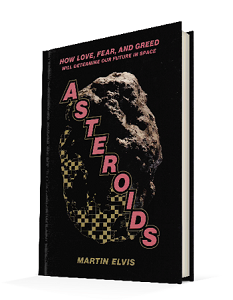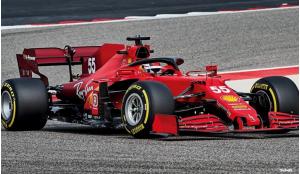Long gone are the days when asteroids were simply those ‘chunks of rock orbiting between Mars and Jupiter’ in the basic astronomy textbooks… and the ‘butt’ of rude jokes that played on a similar-sounding human condition of the nether regions. Now that space probes have visited some of the more notable examples and serious plans have been made for the future of asteroid mining, asteroids have moved beyond the jokes into the realm of commercial possibilities.
The subtitle of this book references the author’s “scientific love” for asteroids as a proxy for origin-of-life investigations, the “fear” of the dinosaur-killer and the alleged “greed” of that nascent mining industry. It’s not clear that this lyrical triumvirate “will determine our future in space”, but it’s a decent lead into an interesting analysis of what asteroids mean for humankind.
The book itself is divided into four main sections covering what asteroids are, the motives for studying them, the means for doing so and the opportunities they offer. The text is ‘expert’ (the author being an astrophysicist) but accessible (having the obligatory references to science fiction films such as Armageddon and Heinlein’s sci-fi book “The Man Who Sold the Moon”).
On the more academic side, it comes complete with 33 pages of chapter notes and a substantial index. The illustration list doesn’t reach double figures, but the author paints an interesting picture of his topic. And apart from having Asteroid 9283 Martinelvis named after him, his expression for the number of ore-bearing asteroids was dubbed the “Elvis equation” by New Scientist magazine – so we should rate what he says, right?











